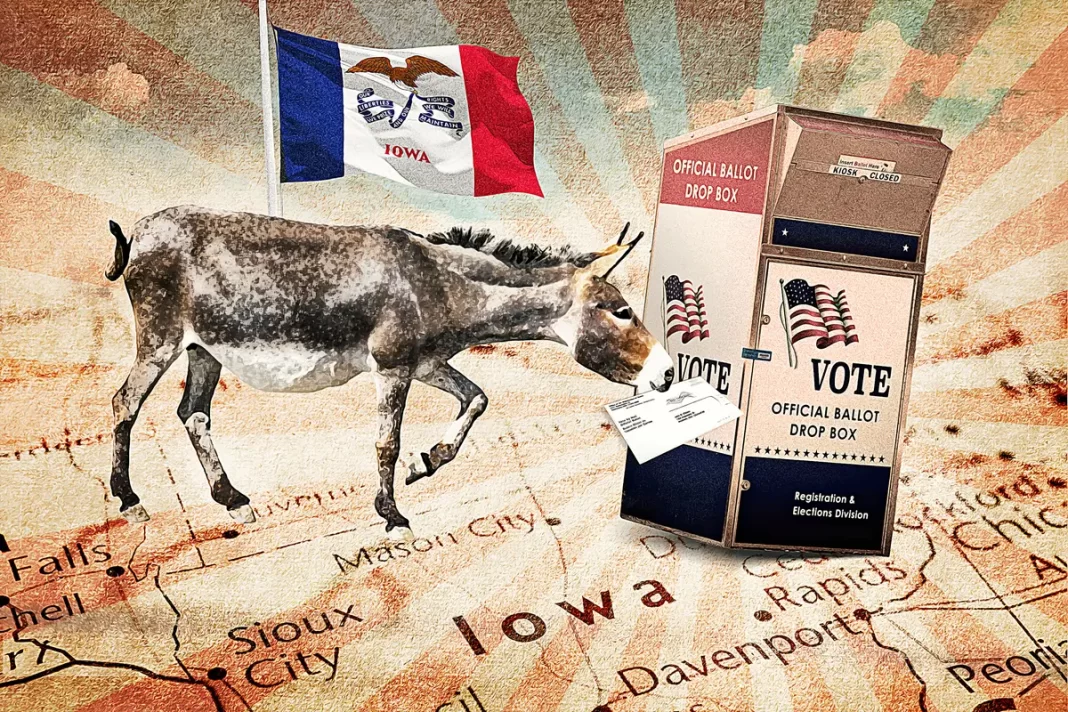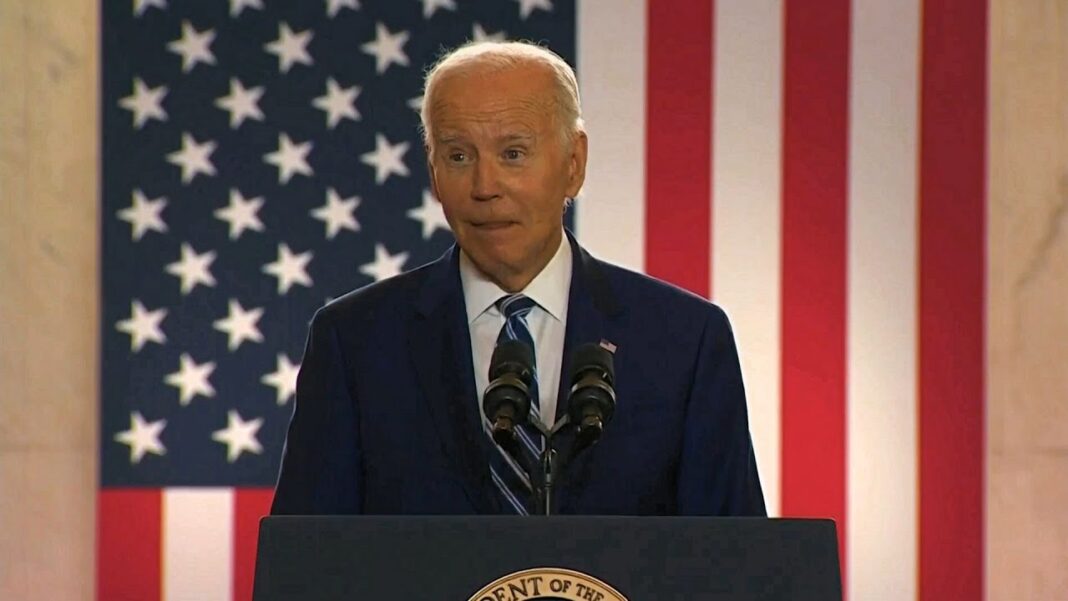In 2022, President Biden wrote a letter to the DNC calling for the end of caucuses and a change to the Democratic nominating calendar.
Iowa Republicans will be the first in the nation to weigh in on the competitive Republican presidential race, as they continue their long-time Iowa Caucus tradition on Jan. 15 next year.
But Democrats—with a virtually noncompetitive race, a presidential call to ditch caucuses, and memories of the bungled 2020 caucus—are turning entirely to mail ballots for the 2024 caucuses in Iowa.
If 2020 was the year of election anomalies, the first irregularity was the Democratic Iowa Caucus which was rife with technical flaws, offered no results on election night, and left the Associated Press unable to ever declare a winner.
The Feb. 3, 2020, Democratic Iowa Caucus used a freshly developed smartphone app to communicate caucus results, but the app got glitchy, and a hotline to call in results was overwhelmed, preventing results from being available on caucus night. By the next day, just 62 percent of the Democratic results were counted. A week later, folks were losing patience.
“The Iowa Democratic Party deserved better than what happened on caucus night,” state party chair Troy Price said in his Feb. 12 resignation letter. With results still not determined, he stepped down eight days after the caucus. By the time Mr. Price resigned, New Hampshire already had results from its Feb. 11, 2020, primary.
The first three rounds of the 2024 primary season didn’t go well for then-candidate Joe Biden, who had terrible results in Iowa, New Hampshire, and Nevada. He didn’t see a win until March 1 in the South Carolina primary where he got 49 percent of the Democratic vote. The Iowa results were finally calculated two days before South Carolina’s primary, putting Mr. Biden in fourth place behind Pete Buttigieg, Sen. Bernie Sanders, and Sen. Elizabeth Warren.
Right after South Carolina and before Super Tuesday, Mr. Buttigieg, Ms. Klobuchar and former candidate and Texas Congressman Beto O’Rourke dropped out of the race and endorsed Mr. Biden. Mr. Sanders dropped out a month later and also endorsed Mr. Biden.
Traditional Caucus Called ‘Anti-Worker’
With the presumptive candidate chosen, the long-delayed result of the Democratic Iowa Caucus fell out of the national conversation. But it was not totally forgotten—nor was Mr. Biden’s poor performance in the early races.
Using the racial makeup of voters as one reason, two years later, President Joe Biden wrote a letter calling for the end of caucuses and a change to the Democratic nominating calendar.
“Our party should no longer allow caucuses as part of our nominating process,” he wrote in December 2022, saying caucuses take too long, require voters to choose their candidate in public, and because they are held at a set time, it is tough for hourly workers to attend.
Caucuses are “Inherently anti-participatory. It should be our party’s goal to rid the nominating process of restrictive, anti-worker caucuses,” he said.
By Beth Brelje









